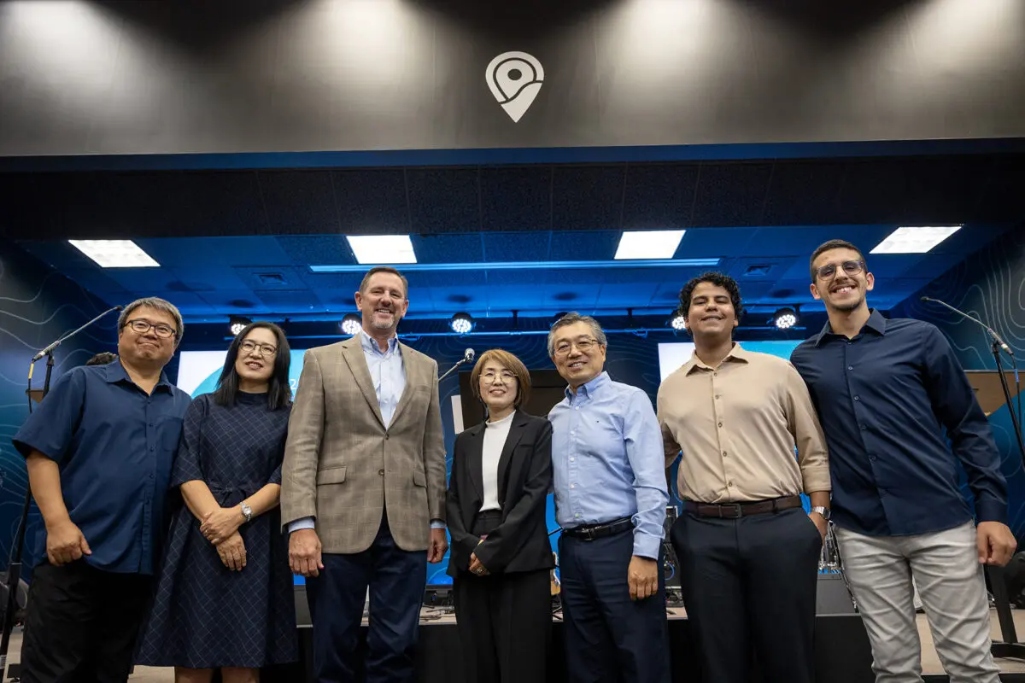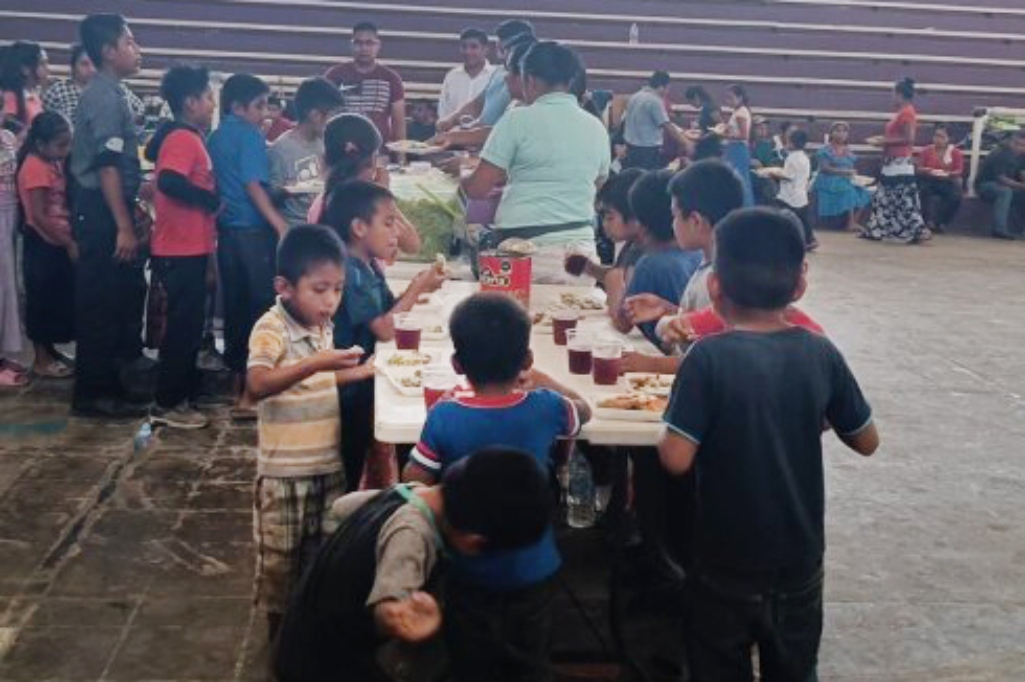
The IMB invited representatives from the Korean Foreign Mission board and Junta de Missões Nacionais in Brazil to participate in field personnel orientation with new missionaries. Paul Chitwood (second from left) thanks the representatives for sharing their own knowledge. Pictured are: Myung Gun Shin, Hyo Chin Lim, Paul Chitwood, Na Yeon Lee, Wonjang Joo, Gabriel da Silva and Francisco Aires Júnior.
RICHMOND, Va. — The International Mission Board (IMB) invited its global partners to its training facilities outside of Richmond to share knowledge between the three mission sending agencies. Jacob Boss, IMB vice president of Global Engagement, thanked the six representatives for being an example of collaboration and partnership among global Baptists.
Cheers erupted from the newly commissioned International Mission Board missionaries for the six global mission partners taking the stage. The representatives from Junta de Missões Nacionais in Brazil and the Korean Foreign Mission Board in Korea completed seven weeks of prefield orientation alongside the American missionaries.
“This FPO (field personnel orientation), we’ve been privileged to have them join us and collaborate together in how we should best train Baptist missionaries all around the world,” Boss said at the commissioning service. “I’m excited to have Baptist partners all around the world partner with us in this mission of taking the gospel to all nations and peoples.”
The applause acknowledged the Koreans’ and Brazilians’ effort in navigating the intense, hands-on training in English and the new bonds of friendship. It also celebrated the importance of global partnerships in the Great Commission task.
Jarod Davis, IMB’s globalization strategy director, explained that, with today’s geopolitical situations, the only way to have access to 100% of unengaged, unreached people groups is through a network of global partners. He noted the IMB doesn’t have direct access to every part of the world, yet these areas are accessible by at least one key global sending partner.
“If we work together, we realistically have access to all people groups,” Davis said. “This is why it’s essential to share our knowledge and mistakes. Collaborating like this makes us true partners because we have a shared vision and goal. We are on the same page.”
Wonjang Joo, deputy director of the World Missionary Training Center in Korea, and Francisco Aires Junior, manager of Missionary Formation and Strategy in Brazil, couldn’t agree more. Joo pointed out that historically, global missions were predominantly led by Western churches. Now, he said, non-Western churches see themselves as “essential in fulfilling the will of the Lord,” something that has been at the core of IMB’s mission throughout its 180-year history.
Both missions agencies are examples of moving from “being the mission field to sending missionaries” home and abroad. They’ve been doing it successfully for decades. So, when the two entities decided it was time to upgrade and develop their missionary training, it was a natural step to talk with IMB.
Davis said the IMB offered them a chance to go through its orientation as if they were new missionaries going to the field. While the core missionary objectives never change, the Field Orientation team constantly updates teaching methods to keep up with technology and current world issues. This orientation team met consistently with the Brazilians and Koreans to work through the reasoning behind certain activities and if it would transfer to their cultural context.
“One thing that stood out the most is that everything is intentional,” Aires said. “All of the activities, including mealtimes or even who sits together at a table, are built for specific outcomes that support and reinforce the missionary tasks. They also make sure you aren’t just learning from the teacher in the front of the room, but by applying it through doing it and debriefing with your peers.”
This hands-on approach to learning was something both the Koreans and Brazilians were most interested in learning. The global partners were fully engaged in the evangelism and mapping training where missionaries go into Richmond neighborhoods to map out where specific people groups or clusters of people are. They also learned how to start gospel conversations with the people they encountered.
Joo’s team was excited to learn how to take this theoretical information and turn it into a learning activity that prepares missionaries for life on the mission field. He plans to adapt some of these lesson styles and implement them as soon as 2026.
“I sincerely thank IMB for its past support that enabled Korean churches to train and send missionaries,” Joo said. “I look forward to this continued beautiful cooperation so that together we may accomplish the unfinished task of world missions.”
Aires added experiencing IMB’s field personnel orientation will help them build a foundation that offers the best tools for their missionaries to be used on the field and with global partners like the IMB and Korean Foreign Mission Board.
Davis thanked the representatives from Brazil and Korea for not just participating but sharing their own knowledge to strengthen the IMB’s training.
“Korean and Brazilian Baptists are not just partners, they are our brothers and sisters,” Davis said. “We are committed to walking hand-in-hand to access all people groups around the world with the gospel.”
(EDITOR’S NOTE — Sue Sprenkle writes for the IMB.)


